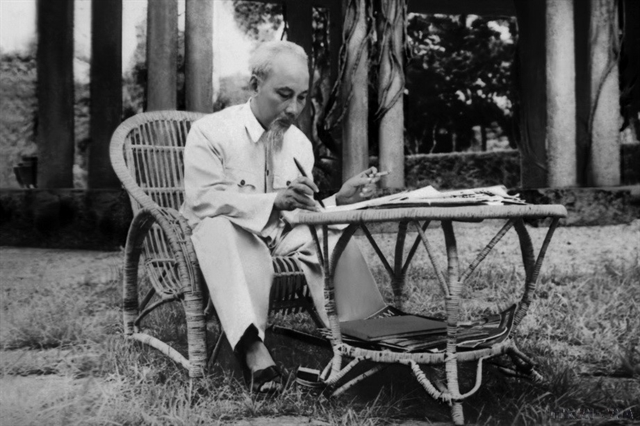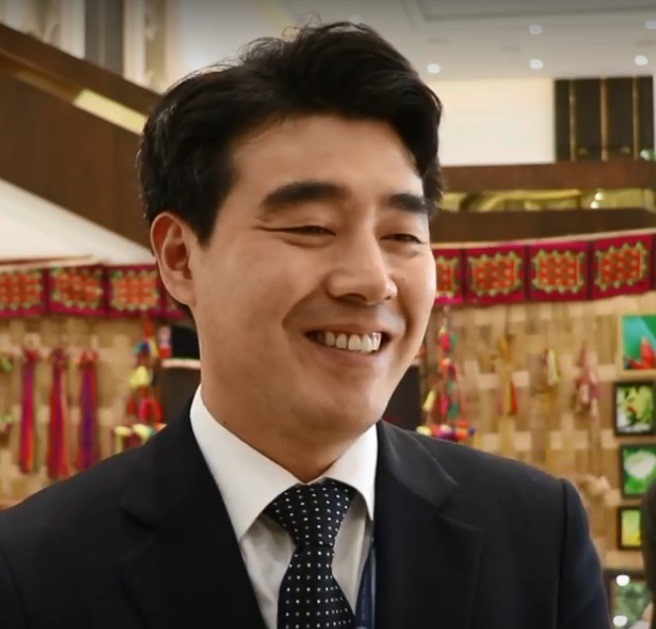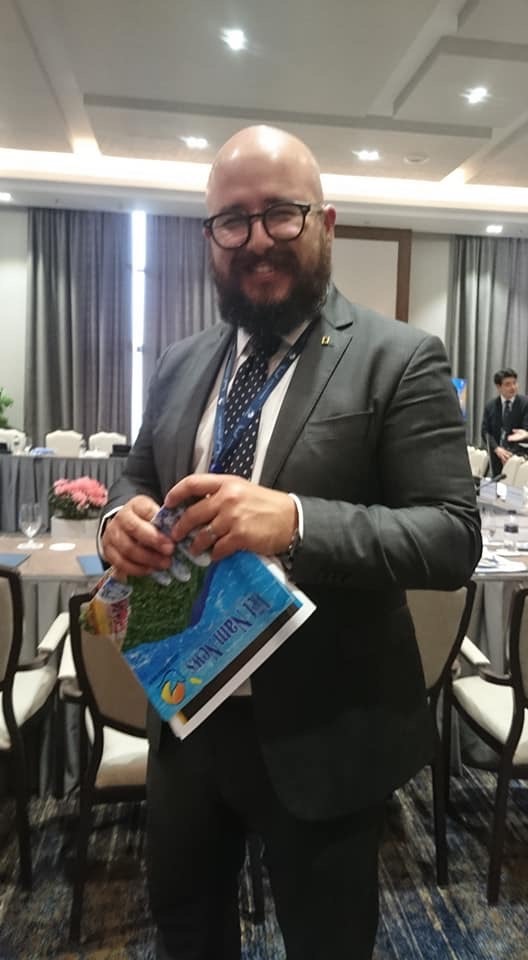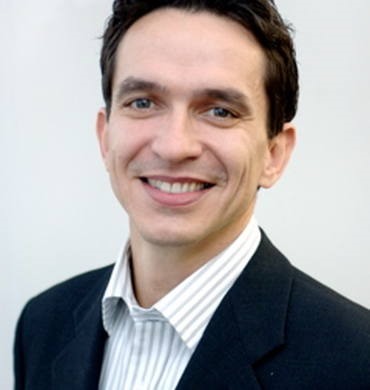 Life & Style
Life & Style

ASEAN has so far a total of 38 World Heritage sites which have contributed significantly to tourism development of each country and offered socio-economic, cultural benefits to local communities. In the digital era, preservation of ASEAN heritage values plays a key role in maintaining tourism sustainability. Việt Nam News reporters Hồng Vân and Khánh Dương talk to delegates at ASEAN Tourism Forum which is taking place in Hạ Long, the city of a World Heritage site, in northern Quảng Ninh Province about how technology can be best used in tourism.
 |
| Seul Ki Lee, Sejong University’s Department of Hotel and Tourism Management, director of Tourism Industry Data Analytics Lab in the Republic of Korea. — VNS Photo |
ASEAN has so far a total of 38 World Heritage sites which have contributed significantly to tourism development of each country and offered socio-economic, cultural benefits to local communities. In the digital era, preservation of ASEAN heritage values plays a key role in maintaining tourism sustainability. Việt Nam News reporters Hồng Vân and Khánh Dương talk to delegates at ASEAN Tourism Forum which is taking place in Hạ Long, the city of a World Heritage site, in northern Quảng Ninh Province about how technology can be best used in tourism.
Technology has been widely applied in various aspects of life. What is its role in tourism?
Peter Debrine, senior project officer of World Heritage Nature, Sustainable Tourism and Outreach Unit:
Technology is a tool of how we communicate. We get inspired by travel and we use technology to find out where we are going to visit, what we are going to see and then when you are there, you use the technology to share what’s the best restaurants to eat, what are the opening hours of the World Heritage site.
Technology is how we share that information with our friends and families and spread that message out there by taking Instagram photos, sharing them and telling the world ‘This is a very interesting place’, ‘These are local dishes everybody needs to try’.
Technology also has the role of helping us protect sites. By sharing information we instill the appreciation of the values for heritage which then inspires people to want to protect it.
Associate Professor Seul Ki Lee, Sejong University’s Department of Hotel and Tourism Management, director of Tourism Industry Data Analytics Lab in the Republic of Korea:
Technology plays many roles I think in not just sustainable tourism but in all aspects of tourism.
Firstly, technology plays a role in terms of improving interactivity and experience of tourists. Before, many things have to be done without digital technology.
Without digital technology, it might go against sustainable tourism. For example, we have to rely on printed materials, kill a lot of trees, generate a lot of tourism-related waste in that area. Nowadays, many things are actually digitalised and trees are saved and we use many other printed materials.
At the same time I think tourism destination has life cycle which depends heavily on content. With digital technology, you can extend the destination’s life cycle and improve sustainability. And that sustainability can be maintained only when you have sufficient appeal in the market. In many ways, I think digital technology would support sustainable tourism in many aspects including environment, culture, heritage and financial sustainability.
What are the challenges of applying technology in tourism?
Kyi Kyi Aye, senior advisor of Myanmar’s Tourism Federation.
One challenge that Myanmar has faced is technology in Myanmar came a little later than other ASEAN countries. Young people need to be aware of the Dos and the Don’ts in using the technology. We should have certain guidelines so people are going in the right direction.
Is there any downside of the application of technology in sustainable tourism in terms of the authenticity of travellers’ experience and the threat of job loss due to Artificial Intelligence and technologies?
Con Apostolopoulos, senior vice president and general manager of National Geographic Partners, Asia Pacific and the Middle East:
In tourism, there’s always going to be a risk of people automating everything, so booking, things like automated tours are very real, someone could easily put on headphones and get the tour that they previously pay someone to give them but I think most humans and most travellers really love authentic experiences and that authentic experiences will come with talking to local people and be with local people. That can be very difficult to be replaced.
Seul Ki Lee: Authenticity might be compromised in the sense that actually many destinations would be tempted to appeal to tourists using the same technology, so maybe VR here VR there, and so everything becomes common.
It probably should be improved with enhancing understanding of local government and private sector seeing that unique storytelling and content are more important than the technology itself. So when technology becomes the core theme of the tourism activity, it is quite risky but if it is storytelling and content and it is enabled by technology, that appeals to tourists.
With regard to employment, I think there’s a lot of worries and expectation that many jobs will be lost because of Artificial Intelligence and guided service tours.
I think there needs to be a restructuring in the industry and it is coming. I think for the most parts, it is not that technology is replacing tourism service personnel but rather aiding or assisting them. Maybe some jobs may be lost, some jobs would require fewer people but the tourism workforce would not be without jobs. You could actually move some people to other services so they can provide more values to customers and in that line of reason, many new jobs will be created in this digital era. There are probably greater values created by these jobs because this additional workforce can be utilised in customer service and other aspects of service quality which usually means greater value for customers.
South Korea has been known as a technology savvy country. So how has technology been applied to tourism in your country?
Seul Ki Lee: Everywhere I would have to say. Yes technology has been quite rapidly affecting the tourism behaviours and ecology of tourism related private sector so we recently hosted PyeongChang Olympic Games and the idea was to use technology as much as possible to facilitate this mega event.
We have everything from a virtual reality (VR) centre that allows people to experience PyeongChang before they actually visit the place; wifi service that allows people to be connected at all time throughout the tourism itinerary. We also have audio guide services which are vailable for free in major tourist hotspots. And reservation, scheduling, transporting, everything can pretty much be just in your hands. So I think this is a response to the trend.
There’s also a big trend that more and more Free and Independent Travellers (FITs) are coming to Korea and this also means new businesses appearing. Now we have more independent tour guide services and accommodations that cater to FITs exclusively. We have restaurants and other amenities that are more desired for interaction. Before we rely on big restaurants but now it’s not anymore. So I guess digitalisation in tourism industry is something that Korea is embracing at the moment and at every level, the government and the private sector, we all see they are trying to make the most of it including the birth of new businesses allowed by new technology.
What should ASEAN countries do to promote the collaboration in this sector?
Peter Debrine: In terms of tourism co-operation among ASEAN countries, I really like the theme of ASEAN Tourism Forum which is ‘The Power of One’. By working together, you can realise the potentials of sustainable tourism and make use of tourism as the way to co-operate across border. We should have some mechanisms on how to co-operate so we can share best practices on management and protection of the sites. I think the idea of sharing responsibilities is a core thing across ASEAN region tourism co-operation. — VNS
 |
| Con Apostolopoulos, senior vice president and general manager of National Geographic Partners, Asia Pacific and the Middle East. — VNS Photo Mỹ Hà |
 |
| Peter Debrine, senior project officer of World Heritage Nature, Sustainable Tourism and Outreach Unit. — Photo courtesy of Peter Debrine |




